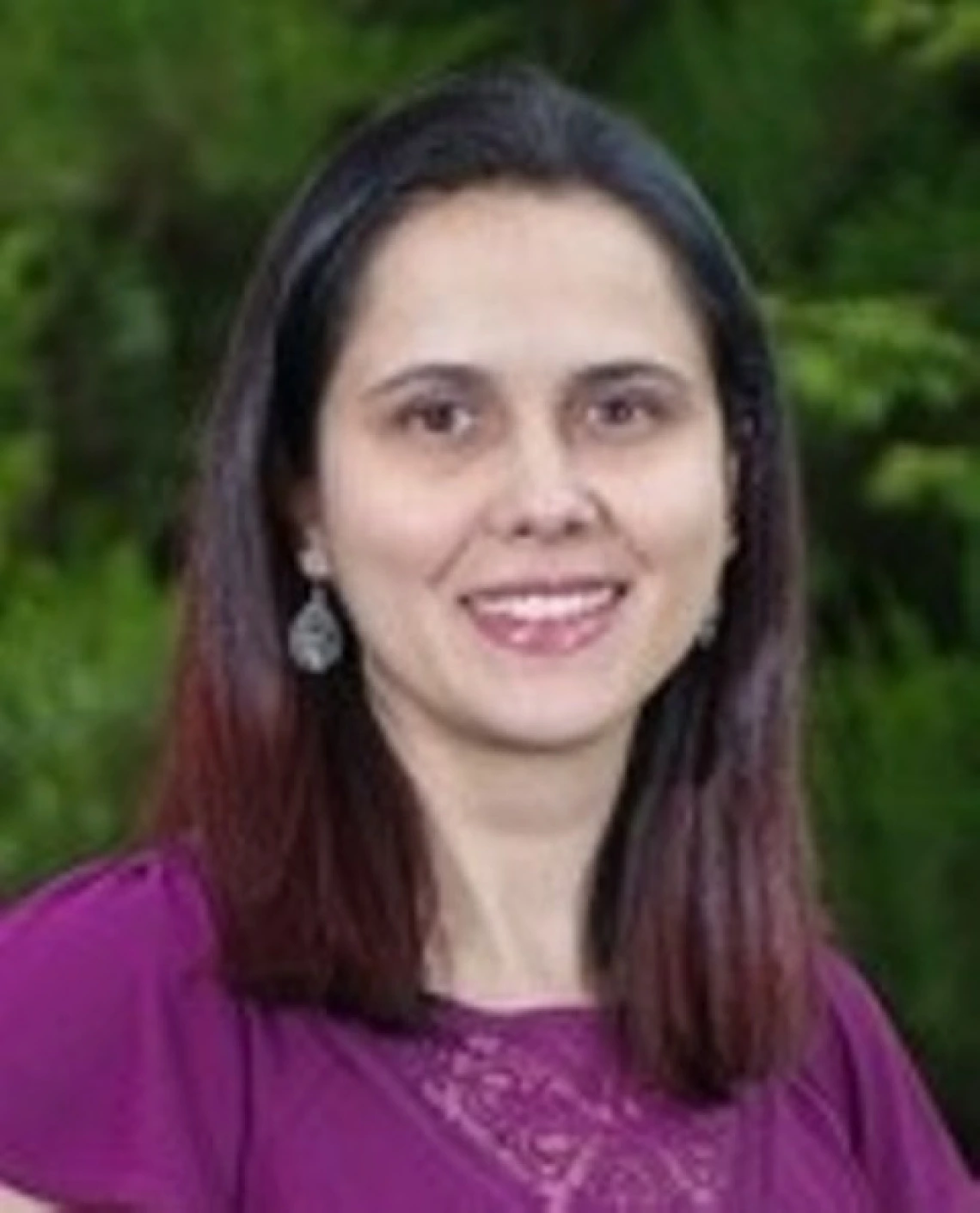Faculty Juliana Lessa Sacoman, PhD

Reprinted and edited from Physiology Ambassadors Newsletter November 2019 issue.
From personal inspiration to pursue biomedical scientific research, to the transition into becoming a full-time educator, Juliana Lessa Sacoman, PhD, understands the value in making the most of opportunities.
A senior lecturer on the Educator Series Track, Dr. Sacoman teaches upper division physiology electives, as well as PSIO 101, a new “Introduction to Physiology” course for first-year students. She earned her bachelor’s degree in biological sciences and her master’s in cell and structural biology at Campinas State University in San Paulo, Brazil. Wanting a study-abroad experience and immersion in a different language, she attended Michigan State University, where she received her PhD in biochemistry and molecular biology.
Initially, the loss of a close relative from melanoma motivated Dr. Sacoman to pursue a career in cancer research. However, while serving as a teaching assistant (TA) during her doctoral program, she discovered how much she enjoyed teaching. “That was when my interests started to shift,” she says.
During her post-doctoral program at the University of Nevada, Reno, Dr. Sacoman continued to explore her passion for teaching as a lecturer for a molecular biology lab course. Teaching this course for two years at UNR made it clear to her that being an educator was her true calling.
Dr. Sacoman joined the University of Arizona Physiology Department in January 2019 as a fulltime lecturer. Her academically diverse experience with biochemistry and molecular biology enables her to teach physiology from a slightly different perspective. “I like that I come from a background of the more microlevel because it goes really well with the macrolevel. I like how they tie together and how physiology integrates both,” she explains.
Dr. Sacoman loves interacting directly with students and seeing how much they are learning and maturing academically. “When you are working on developing a new drug, you see the results of that in 20 years. With teaching, I get to see how much students grow throughout the semester,” she says. What she likes most about teaching Physiology at UArizona is the opportunity to educate a large number of students who are dedicated and focused. “Because Physiology is such large undergraduate program, there are lots of students with diverse interests and are active and engaged in class,” she says.
The best advice Dr. Sacoman has for physiology students is to integrate the concepts learned in classes. She values critical thinking as “one of the biggest things you can learn as an undergrad,” she says. “It’s not about the content; it’s about the process. Developing transferable skills such as critical thinking is essential because all the different professions related to physiology will apply the scientific method process – asking questions, investigating ways to answer such questions, and analyzing the results of such experimentation.”
Additionally, Dr. Sacoman emphasizes, “Don’t earn your degree just to have your diploma. Take advantage of opportunities to practice professional skills and gain insight from professors. Take advantage of any available tools to help you understand better.”
In her spare time, Dr. Sacoman enjoys playing with her three dogs, reading, and binge-watching her favorite television shows.
Dr. Sacoman’s favorite cell in the human body is the cardiomyocyte because educators should strive to have compassion and understanding. “Have a heart (cell) for students! Regardless of everything professors teach, they should always remember that students are still humans and will experience difficulties during their time in school.”
Dr. Sacoman also wants students to know that professors like her are there to help them and want them to succeed!

